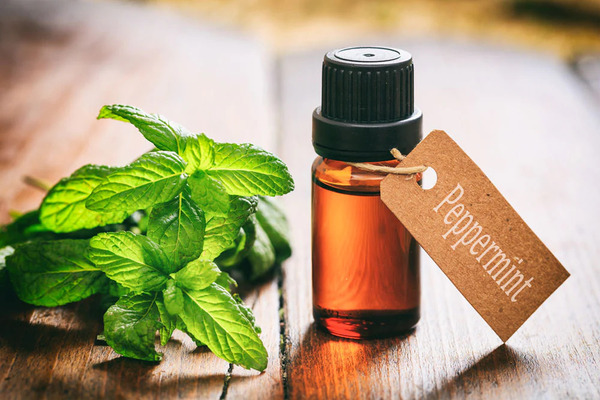Peppermint oil is a popular essential oil known for its refreshing scent and potential health benefits for humans. However, pet owners often wonder: is peppermint oil safe for animals? In this article, we’ll explore the safety of peppermint oil for pets, its potential uses, the hazards it poses, and what precautions you should take.
Peppermint oil is derived from the leaves of the peppermint plant (Mentha piperita). It contains compounds like menthol and menthone, which give it its distinctive aroma and therapeutic properties. While peppermint oil can offer various benefits for humans, it can affect animals differently.

Dogs: Some dog owners use peppermint oil to repel insects or freshen up their homes, but caution is essential. Small amounts may be safe when diluted properly, but concentrated peppermint oil can cause gastrointestinal upset, lethargy, or skin irritation in dogs. Symptoms of toxicity can include excessive drooling, vomiting, or diarrhea. Always consult your veterinarian before using any essential oil around your dog.
Cats: Cats are particularly sensitive to essential oils, including peppermint. Their livers do not metabolize certain compounds effectively, leading to potential toxicity. Exposure to peppermint oil can result in respiratory distress, vomiting, tremors, or even liver damage. It’s best to avoid using peppermint oil around cats altogether.
Other Pets: The safety of peppermint oil for other animals, like rabbits, ferrets, or birds, is also a concern. These animals can be sensitive to strong scents and oils. For example, peppermint oil can irritate the respiratory tracts of small animals, leading to coughing or difficulty breathing. It’s advisable to consult with a veterinarian before using peppermint oil around any type of pet.
Gastrointestinal Issues: Ingestion of peppermint oil can lead to serious gastrointestinal problems in pets. Symptoms may include vomiting, diarrhea, and abdominal pain.
Neurological Symptoms: High concentrations of peppermint oil can affect the central nervous system of pets, leading to tremors, seizures, or even coma in severe cases.
Respiratory Distress: The strong scent of peppermint oil can cause respiratory issues in sensitive animals, particularly cats and small mammals, potentially leading to coughing, wheezing, or difficulty breathing.
Skin Irritation: Direct contact with concentrated peppermint oil can cause skin irritation or allergic reactions in pets, resulting in redness, itching, or swelling.
Peppermint (Mentha piperita) is commonly used in households as an herb or essential oil, but it can pose potential hazards to some animals. Here are several dangers associated with the peppermint plant for different animals:
Digestive Issues: Ingesting large amounts of peppermint leaves may lead to gastrointestinal upset in dogs, resulting in vomiting, diarrhea, and abdominal pain.
Skin Irritation: If the sap or extracts of the peppermint plant come into contact with a dog's skin, it may cause allergic reactions or skin irritation, manifesting as redness and itching.
Risk of Toxicity: Cats are particularly sensitive to peppermint. Certain compounds in peppermint may affect a cat's nervous system, leading to symptoms such as vomiting, diarrhea, lethargy, or respiratory distress. Cats’ livers are not able to effectively metabolize some of the compounds found in peppermint, increasing the risk of toxicity.
Behavioral Changes: Some cats may exhibit heightened excitement or stimulation in response to peppermint, but this reaction can vary among individuals.
Respiratory Irritation: For small mammals (such as rabbits, guinea pigs, etc.), the strong scent of peppermint may irritate their respiratory tracts, causing coughing or difficulty breathing.
Digestive Issues: Similar to dogs, ingesting peppermint may also lead to digestive problems in other small animals.
Digestive Problems: Some bird species may have negative reactions to the compounds in peppermint, resulting in digestive discomfort or other health issues. The strong aroma of peppermint oil can also be irritating to birds.
While the peppermint plant is popular in cooking and herbal remedies, pet owners should exercise caution when using it. The potential hazards of peppermint for dogs, cats, and other small animals—including digestive issues, skin irritation, and toxicity—are important considerations. It’s advisable to consult a veterinarian before introducing peppermint plants into the home environment to ensure the safety of your pets.
Some pet owners explore peppermint oil for various purposes:
Insect Repellent: Peppermint oil is sometimes used as a natural insect repellent. However, due to potential toxicity, it’s essential to dilute it and use it in a well-ventilated area.
Air Freshener: Many people use peppermint oil to freshen up their homes. If you choose to use it, make sure your pets have a space where they can retreat if they find the scent overwhelming.
Topical Applications: Some dog owners use diluted peppermint oil for skin irritations or to soothe sore muscles. Again, always consult a veterinarian for proper dilution and application.
If you’re considering using peppermint oil around your pets, keep these precautions in mind:
Dilution: If using peppermint oil, always dilute it with a carrier oil. A veterinarian can provide guidance on safe dilution ratios.
Ventilation: Ensure that the area is well-ventilated to prevent the accumulation of strong scents that might overwhelm your pets.
Observation: Monitor your pets for any signs of adverse reactions, such as excessive drooling, vomiting, or changes in behavior. If you notice any concerning symptoms, contact your veterinarian immediately.
Consult a Veterinarian: Always consult with a veterinarian before introducing any essential oils into your home, especially if you have multiple pets or animals with pre-existing health conditions.
In summary, while peppermint oil can have benefits for humans, it may not be safe for all animals. Dogs may tolerate diluted forms, but cats and other small pets are more susceptible to toxicity. The hazards of peppermint oil can range from gastrointestinal issues to respiratory distress and skin irritation. Always consult your veterinarian before using peppermint oil around your pets, and take necessary precautions to ensure their safety. By being informed and cautious, you can create a safe and healthy environment for your furry friends.
animal tags: Peppermint Dog
We created this article in conjunction with AI technology, then made sure it was fact-checked and edited by a Animals Top editor.